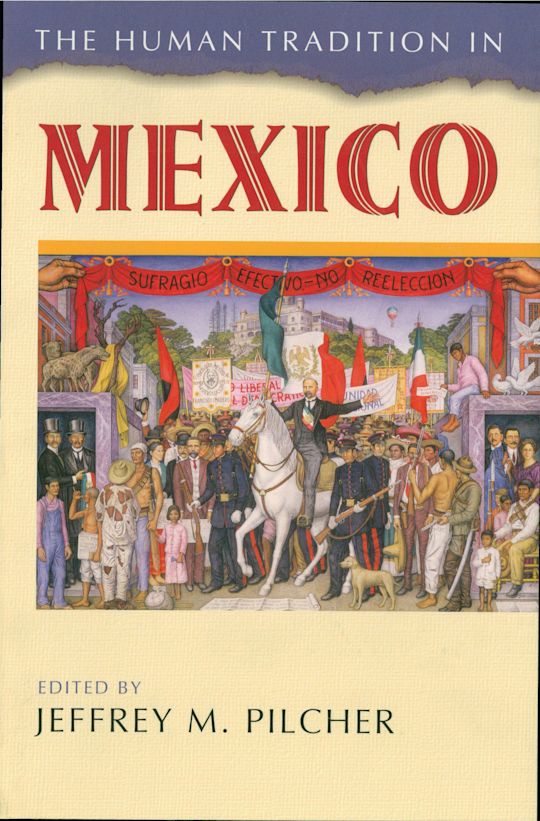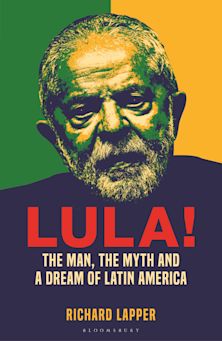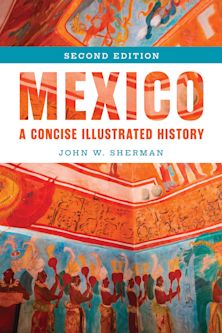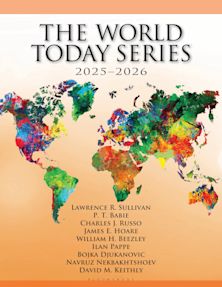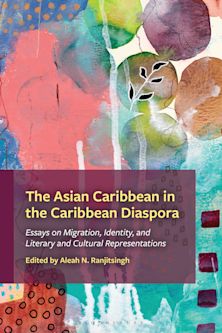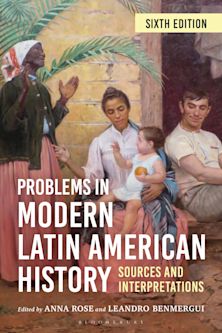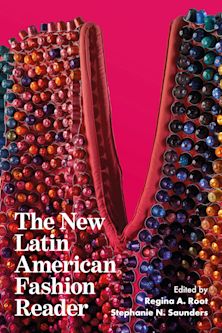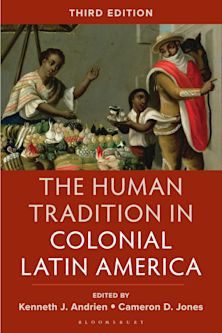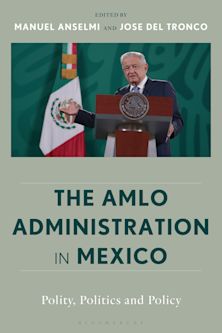- Home
- ACADEMIC
- History
- Latin American History
- The Human Tradition in Mexico
Exam copy added to basket
Choose your preferred format. Please note ebook exam copies are fulfilled by VitalSource™.
Buy from Bloomsbury eTextBooks
You are now leaving the Bloomsbury Publishing website. Your eBook purchase will be with our partner https://www.vitalsource.com.
Your credit card statement will show this purchase originating from VitalSource Technologies. They will also provide any technical assistance you might require.
You must sign in to add this item to your wishlist. Please sign in or create an account
Description
The Human Tradition in Mexico is a book of real-life stories of Mexicans throughout more than 250 years of the country's history. This text does not focus on presidents, generals, and other well-known figures, but rather on the ordinary individuals who faced challenges common to all Mexicans of their generation. Editor Jeffrey M. Pilcher uses these vignettes to explore three significant themes: nationalism and globalization, modernization and its effects on ordinary people, and the struggle for the self. Exploring these pivotal topics, this book personalizes abstract, and sometimes baffling, generalizations on social history by providing fascinating and accessible mini-biographies that will appeal to undergraduate students. In The Human Tradition in Mexico, readers will explore the story of a Mexican Romeo and Juliet, gain insight into the Mexican version of Woodstock, learn to make a fine, aged tequila, and meet the 'apostle of the enchilada.' These essays, written by a talented group of specialists, will show how each individual contributed to the forging of the Mexican identity as the country went from a struggling new nation to a modern republic trying to find its place in an increasingly globalized culture. This book will enlighten and entertain readers with its colorful and engaging narratives of Mexicans throughout the country's rich past.
Table of Contents
Part 2 I. Independent Spirits, 1750-1850
Chapter 3 Josefa Ordóñez: The Scandalous Adventures of a Colonial Courtesan
Chapter 4 Anáhuac's Angry Apostle: Fray Servando Teresa de Mier
Chapter 5 Lucas Balderas: Popular Leader and Patriot
Part 6 II. Heirs of the Reforma, 1850-1910
Chapter 7 Agnes Salm-Salm: An American Princess in Maximilan's Mexico
Chapter 8 Felipe García and the Real Heroes of Guelatao
Chapter 9 Alejandro Prieto: Científico from the Provinces
Chapter 10 Juana Belén Gutiérrez de Mendoza: Woman of Words, Woman of Action
Part 11 III. Revolutionary Generations, 1910-1940
Chapter 12 "Te Amo Muncho": The Love Letters of Pedro and Enriqueta
Chapter 13 Rosa Torre González: Soldadera and Feminist
Chapter 14 Nahui Olin: The General's Daughter Disrobes
Chapter 15 Lic. Moisés de la Peña: The Economist on Horseback
Part 16 IV. Mexicans in the Global Village, 1940 to the Present
Chapter 17 A Public Romance: María Félix and Agustín Lara
Chapter 18 Josefina Velázquez de León: Apostle of the Enchilada
Chapter 19 Armando Nava and Los Dug Dug's: Rock Musicians
Chapter 20 Gabriel Espíndola Martínez: Tequila Master
Chapter 21 Index
Product details
| Published | Dec 01 2002 |
|---|---|
| Format | Ebook (Epub & Mobi) |
| Edition | 1st |
| Extent | 242 |
| ISBN | 9781461638421 |
| Imprint | Rowman & Littlefield |
| Series | The Human Tradition around the World series |
| Publisher | Bloomsbury Publishing |
About the contributors
Reviews
-
What a delightful collection of well-honed essays! Highly recommended.
Choice Reviews
-
This is an important collection of cutting-edge essays treating Mexico from the colonial era to the present. It illuminates long-hidden elements of that nation's cultural and political history through intense research carried out by younger scholars. It will be highly useful in undergraduate classrooms and is must reading for historians of Mexico.
John Mason Hart, University of Houston
-
Jeffrey Pilcher has put together a masterpiece. Fifteen life stories shine a delightfully unusual light into 300 years of Mexican history. Professor Pilcher and his authors distill the essence of what it meant to live in Mexican society during each distinct historical period from the colonial age to the end of the twentieth century. The result is an inspiring book that provides much-needed clear answers to complex issues. The Human Tradition in Mexico should be required reading for interested readers as well as students.
Friedrich E. Schuler, Portland State University
-
By putting a sophisticated human face on the peoples, places, and periods of Mexican history, this collection establishes itself as an indispensable complement to the standard texts on Mexico. A great boon to teachers.
David E. Lorey, director of the Latin American Program, Hewlett Foundation
-
This text provides fifteen original articles, written by respected scholars, addressing events in Mexican history since the middle of the eighteenth century. The quality of material in this collection is excellent overall and will provide college-level instructors with a valuable teaching resource. The articles contained in this text are, in effect, mini-biographies, each detailing the life of an individual while situating their actions and experiences within the broader historical context. This approachyields a view of history not so much from the bottom up, as from the perspective of lived experience. Readers are challenged to see the world not in terms of broad generalizations, but of the specificities of the local and the particular. Students are encouraged to see that while everyday life is lived in the context of the major events, these great occurrences are also the sum total of individual actions and lives that usually pass unremembered. This book would work very well with courses moving from independence to the present. A very well constructed volume.
Arizona Journal Of Hispanic Cultural Studies
-
This text provides fifteen original articles, written by respected scholars, addressing events in Mexican history since the middle of the eighteenth century. The quality of material in this collection is excellent overall and will provide college-level instructors with a valuable teaching resource. The articles contained in this text are, in effect, mini-biographies, each detailing the life of an individual while situating their actions and experiences within the broader historical context. This approach yields a view of history not so much from the bottom up, as from the perspective of lived experience. Readers are challenged to see the world not in terms of broad generalizations, but of the specificities of the local and the particular. Students are encouraged to see that while everyday life is lived in the context of the major events, these great occurrences are also the sum total of individual actions and lives that usually pass unremembered. This book would work very well with courses moving from independence to the present.
A very well constructed volume.Arizona Journal Of Hispanic Cultural Studies









